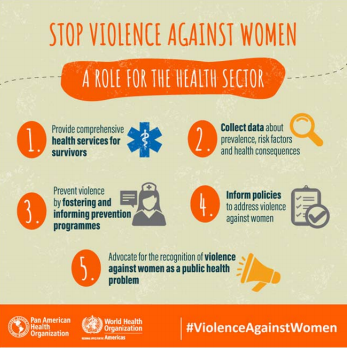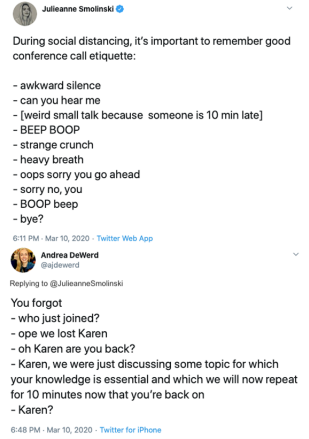Questões de Vestibular de Inglês
Foram encontradas 5.955 questões
Morro velho

MILTON NASCIMENTO
Adaptado de miltonnascimento.com.br.

PAUL SIMON and ART GARFUNKEL
Adaptado de genius.com.
(Adaptado de https://social-change.co.uk/blog/2019-03-29-equality-and-equity; https://cx.report/2020/06/02/equity/. Acessado em 22/07/2020.)
Sabemos que esses conceitos são complexos. Diante disso, o designer Tony Ruth os representou graficamente, como ilustram as figuras a seguir. Assinale a alternativa que mais se aproxima do conceito destacado no trecho anterior.
Sweetest Fanny,
When you passed my window home yesterday, I was filled with as much admiration as if I had then seen you for the first time. You uttered a half complaint once that I only loved your Beauty. Have I nothing else then to love in you but that? Do not I see your heart? Nothing has been able to turn your thoughts a moment from me. Even if you did not love me I could not help an entire devotion to you: how much more deeply then must I feel for you knowing you love me. My Mind has been the most discontented and restless one that ever was put into a body too small for it. I never felt my Mind repose upon anything with complete and undistracted enjoyment – upon no person but you. When you are in the room my thoughts never fly out of window: you always concentrate my whole senses. Your affectionate, J. Keats (Adaptado de http://www.john-keats.com/briefe/. Acessado em 25/08/20.)
O autor da carta

(Disponível em https://www.who.int/reproductive health/publications/covid-19-vaw-infographics/en/. Acessado em 01/08/2020.)
O cartaz anterior, divulgado pela Organização Mundial da Saúde no contexto da atual pandemia, destaca o papel dos governos em
A group of people who believe the Earth is flat have announced their “boldest adventure yet”: a Flat Earth cruise scheduled for 2020. Flat earthers will enjoy swimming pools and perhaps even an artificial surf wave. There’s just one problem for those celebrating the flatness of the Earth. The navigational systems cruise ships, and other vessels, use rely on the fact that the Earth is not flat. “Nautical charts are designed with that in mind: that the Earth is round. GPS relies on 24 main satellites which orbit the Earth to provide positional and navigational information. The reason why 24 satellites were used is because of the curvature of the Earth,” said Henk Keijer, a former cruise ship captain who sailed all over the globe during a 23-year career. “At least three satellites are required to determine a position. But someone located on the other side of the Earth would also like to know their position, so they also require a certain number of satellites. Had the Earth been flat, a total of three satellites would have been enough to provide this information to everyone on Earth. But it is not enough, because the Earth is round.”
(Adaptado de https://www.theguardian.com/science/2019/jan/09/flat-earth-cruisenautical-navigation. Acessado em 20/08/2020.)
A respeito do fato noticiado, o autor do texto ressalta
IS BURNOUT REAL?
Last week, the World Health Organization upgraded burnout from a “state” of exhaustion to “a syndrome” resulting from “chronic workplace stress” in its International Disease Classification. That is such a broad definition that it could well apply to most people at some point in their working lives. When a disorder is reportedly so widespread, it makes me wonder whether we are at risk of medicalizing everyday distress. If almost everyone suffers from burnout, then no one does, and the concept loses all credibility. By Richard A. Friedman
I'm sure the author's generation also experienced workplace stress. However, his generation also experienced real economic stability and socioeconomic gains. There was a light at the end of the tunnel. Currently, we are working tirelessly towards what ends? There doesn't seem to be a light at the end of the tunnel. The burnout is psychological and existential as much as it is physical. Anna B. – New York, June 4, 2019 (Adaptado de https://www.nytimes.com/2019/06/03/opinion/burnout-stress.html. Acessado em 16/09/2020.)
Em seu comentário, a leitora Anna B. discorda do autor do texto quanto à

While writing, I also started thinking about the middle class in Nigeria. When Yejide visits her mother-in-law, there’s a very low fence in front of their house. It’s barely a fence. When Yejide and Akin build their own house in the early nineties, they erect a fence that’s higher than the house. You can’t see inside. That was something I observed about architecture in Nigeria—that at some point, probably in the eighties and nineties, when things became quite turbulent and there was all of this insecurity, one of the ways the people who could afford to insulate themselves against what was going on did was to build higher fences, to use money as a shield in a sense. I wanted that political turbulence to play in the background. (Adaptado de https://www.theparisreview.org/blog/2017/08/08/great-expectations -interview-ayobami-adebayo/. Acessado em 21/07/2020.)
Segundo a autora, as casas e as cercas na Nigéria representam
 (Disponível em https://www.instagram.com/greengodictionary. Acessado em
26/05/2020.)
(Disponível em https://www.instagram.com/greengodictionary. Acessado em
26/05/2020.)Pode-se dizer que a expressão “little lecture”
 (Disponível em https://toonhole.com/comic/what-would-you-like-for-christmas.
Acessado em 30/07/2020.)
(Disponível em https://toonhole.com/comic/what-would-you-like-for-christmas.
Acessado em 30/07/2020.) Ao reformular a sua pergunta, o Papai Noel
What about the artists?
The Guardian - Wed 14 Oct 2020
The government is deaf to the plight of freelance musicians and othercreatives
On Monday, a number of British arts organisations finally heard whether they had received grants from the £1.57bn bailout fund announced in July by the chancellor, Rishi Sunak. Not a moment too soon, institutions such as Wigmore Hall in London, Bristol Old Vic and the City of Birmingham Symphony Orchestra have been given a cash bufferthatshould keep them alive until March.
The welcome announcement has been marred, though, by the failure of the government to address the question of freelancers and self-employed people in the arts. In an interview with ITV last week, Mr. Sunak was asked what he thought professional musicians ought to do, given that they can’t earn enough to live. He answered that up to 3 million people in the country qualified for help under the self-employed support scheme. Pressed on whether musicians oughttofind differentwork, he mentioned retraining schemes that are "providing new and fresh opportunity”. People must adapt, he said. He added that it was untrue that there was no work for musicians. Music lessons, in his own household at least, were still going on.
Source: The Guardian, available at https://www.theguardian. com/commentisfree/2020/oct/14/the-guardian-view-on-saving-thearts-what-about-the-artists, accessed on October21st, 2020.
What about the artists?
The Guardian - Wed 14 Oct 2020
The government is deaf to the plight of freelance musicians and othercreatives
On Monday, a number of British arts organisations finally heard whether they had received grants from the £1.57bn bailout fund announced in July by the chancellor, Rishi Sunak. Not a moment too soon, institutions such as Wigmore Hall in London, Bristol Old Vic and the City of Birmingham Symphony Orchestra have been given a cash bufferthatshould keep them alive until March.
The welcome announcement has been marred, though, by the failure of the government to address the question of freelancers and self-employed people in the arts. In an interview with ITV last week, Mr. Sunak was asked what he thought professional musicians ought to do, given that they can’t earn enough to live. He answered that up to 3 million people in the country qualified for help under the self-employed support scheme. Pressed on whether musicians oughttofind differentwork, he mentioned retraining schemes that are "providing new and fresh opportunity”. People must adapt, he said. He added that it was untrue that there was no work for musicians. Music lessons, in his own household at least, were still going on.
Source: The Guardian, available at https://www.theguardian. com/commentisfree/2020/oct/14/the-guardian-view-on-saving-thearts-what-about-the-artists, accessed on October21st, 2020.
What about the artists?
The Guardian - Wed 14 Oct 2020
The government is deaf to the plight of freelance musicians and othercreatives
On Monday, a number of British arts organisations finally heard whether they had received grants from the £1.57bn bailout fund announced in July by the chancellor, Rishi Sunak. Not a moment too soon, institutions such as Wigmore Hall in London, Bristol Old Vic and the City of Birmingham Symphony Orchestra have been given a cash bufferthatshould keep them alive until March.
The welcome announcement has been marred, though, by the failure of the government to address the question of freelancers and self-employed people in the arts. In an interview with ITV last week, Mr. Sunak was asked what he thought professional musicians ought to do, given that they can’t earn enough to live. He answered that up to 3 million people in the country qualified for help under the self-employed support scheme. Pressed on whether musicians oughttofind differentwork, he mentioned retraining schemes that are "providing new and fresh opportunity”. People must adapt, he said. He added that it was untrue that there was no work for musicians. Music lessons, in his own household at least, were still going on.
Source: The Guardian, available at https://www.theguardian. com/commentisfree/2020/oct/14/the-guardian-view-on-saving-thearts-what-about-the-artists, accessed on October21st, 2020.
What about the artists?
The Guardian - Wed 14 Oct 2020
The government is deaf to the plight of freelance musicians and othercreatives
On Monday, a number of British arts organisations finally heard whether they had received grants from the £1.57bn bailout fund announced in July by the chancellor, Rishi Sunak. Not a moment too soon, institutions such as Wigmore Hall in London, Bristol Old Vic and the City of Birmingham Symphony Orchestra have been given a cash bufferthatshould keep them alive until March.
The welcome announcement has been marred, though, by the failure of the government to address the question of freelancers and self-employed people in the arts. In an interview with ITV last week, Mr. Sunak was asked what he thought professional musicians ought to do, given that they can’t earn enough to live. He answered that up to 3 million people in the country qualified for help under the self-employed support scheme. Pressed on whether musicians oughttofind differentwork, he mentioned retraining schemes that are "providing new and fresh opportunity”. People must adapt, he said. He added that it was untrue that there was no work for musicians. Music lessons, in his own household at least, were still going on.
Source: The Guardian, available at https://www.theguardian. com/commentisfree/2020/oct/14/the-guardian-view-on-saving-thearts-what-about-the-artists, accessed on October21st, 2020.
‘The Complete Stories,’ by Clarice Lispector

By Terrence Rafferty
July 27, 2015
There’s a whiff of madness in the fiction of Clarice Lispector. The “Complete Stories” of the Brazilian writer, edited by Benjamin Moser and sensitively translated by Katrina Dodson, is a dangerous book to read quickly or casually because it’s so consistently delirious. Sentence by sentence, page by page, Lispector is exhilaratingly, arrestingly strange, but her perceptions come so fast, veer so wildly between the mundane and the metaphysical, that after a while you don’t know where you are, either in the book or in the world. So it’s best to approach her with some caution. For the ordinary reader — that is to say, for most of us — immersion in the teeming mind of Clarice Lispector can be an exhausting, even a deranging, experience, not to be undertaken lightly. (Pack food, water, a first aid kit and plenty of sunblock.)
Her stories are full of strange words, in strange combinations, and her “Complete Stories” is a remarkable book, proof that she was — in the company of Jorge Luis Borges, Juan Rulfo and her 19th-century countryman Machado de Assis — one of the true originals of Latin American literature.
THE COMPLETE STORIES
By Clarice Lispector
Edited by Benjamin Moser
Translated by Katrina Dodson
645 pp. New Directions. $28.95.
(Adaptado de https://www.nytimes.com/2015/08/02/books/review/the-completestories-by-clarice-lispector.html. Acessado em 21/07/20.)
No texto acima, o livro de Clarice Lispector recebe uma
crítica
There will come soft rains and the smell of the ground, And swallows circling with their shimmering sound; And frogs in the pools singing at night, And wild plum trees in tremulous white; Robins will wear their feathery fire, Whistling their whims on a low fence-wire; And not one will know of the war, not one Will care at last when it is done. Not one would mind, neither bird nor tree, If mankind perished utterly; And Spring herself, when she woke at dawn Would scarcely know that we were gone.
(Disponível em https://poets.org/poem/there-will-come-soft-rains. Acessado em 24/08/2020.)
O poema destaca

(Disponível em https://www.paho.org/en/topics/violence-against-women. Acessado em 24/08/2020.)
Qual das medidas abaixo é recomendada no cartaz?

English lacks a gender-neutral singular pronoun to correspond with singular pronouns like everyone or someone, and as a consequence they has been used for this purpose for over 600 years. Recently though, they has also been used to refer to a person whose gender identity is nonbinary, a sense that is increasingly common in published text, social media, and in daily personal interactions between English speakers. There's no doubt that its use is established in the English language, which is why it was added to the Merriam-Webster dictionary in September of 2019. Nonbinary they was also prominent in the news in 2019. Congresswoman Pramila Jayapal (WA) revealed in April that her child is gender-nonconforming and uses they. And the American Psychological Association’s blog officially recommended that singular they be preferred in professional writing over “he or she” when the reference is to a person whose gender is unknown or to a person who prefers they.
(Adaptado de https://www.merriam-webster.com/words-at-play/word-of-the-year/ they. Acessado em 29/04/2020.)
De acordo com o texto, o fato de uma palavra simples, como o pronome “they”, ter sido escolhida como a palavra do ano de 2019 se justifica pela necessidade de
Catherine Fletcher, Tue 4 Feb 2020
The decision by a UK University to close history, modern languages and politics degrees in favour of more “careerfocused” courses has been widely criticised. The problem lies in reducing university education to what sells to employers. A society – and a world – urgently needs people who have the education to think about big issues, which aren’t only scientific or technological: they’re also about the ways that people have made, and continue to make, decisions. The humanities matter. And it matters that students from all backgrounds have the opportunity to join in these world-changing discussions.
Roger Brown, Mon 10 Feb 2020
Catherine Fletcher is completely correct to warn about the damage that current policies are doing to the humanities. But her warning comes much too late. As I and other scholars have shown, the problem started with a government green paper which declared that the fundamental purpose of higher education was to serve the economy. Until we recover the idea that higher education is as much about the public good as anything else, we will never be able to sustain the humanities as an essential component of a balanced curriculum. Unfortunately, there is very little sign that this has been grasped by any of our current policymakers.
(Adaptado de www.theguardian.com/education/2020/feb/10/humanities-are-notthe-right-courses-to-cut. Acessado em 22/05/2019.)
Os textos acima concordam quanto à identificação de
um problema nos cursos universitários no Reino Unido,
mas divergem quanto
(Adaptado de https://www.britannica.com/biography/Ludwig-van-Beethoven. Acessado em 29/07/20.)
A partir do conteúdo do texto, pode-se afirmar que

(Disponível em https://twitter.com/ajdewerd/status/1237495536036581379. Acessado em 30/07/2020.)
A resposta de Andrea ao tweet de Julieanne